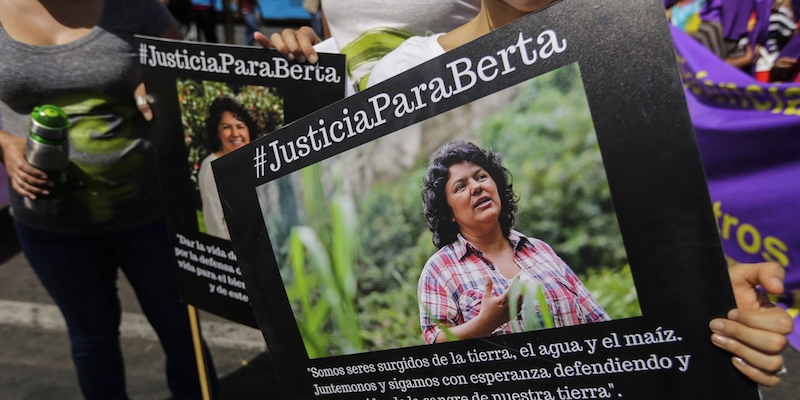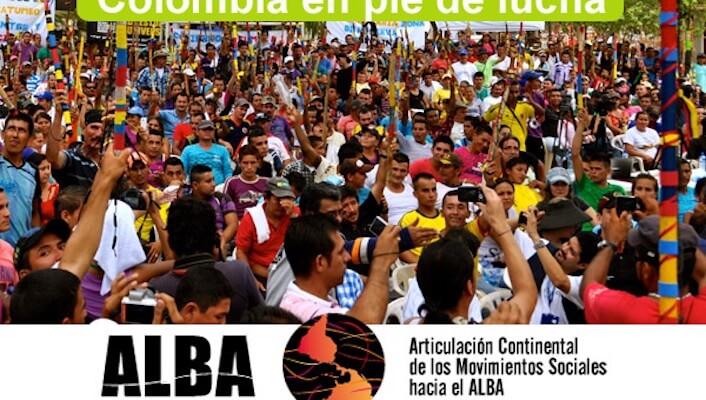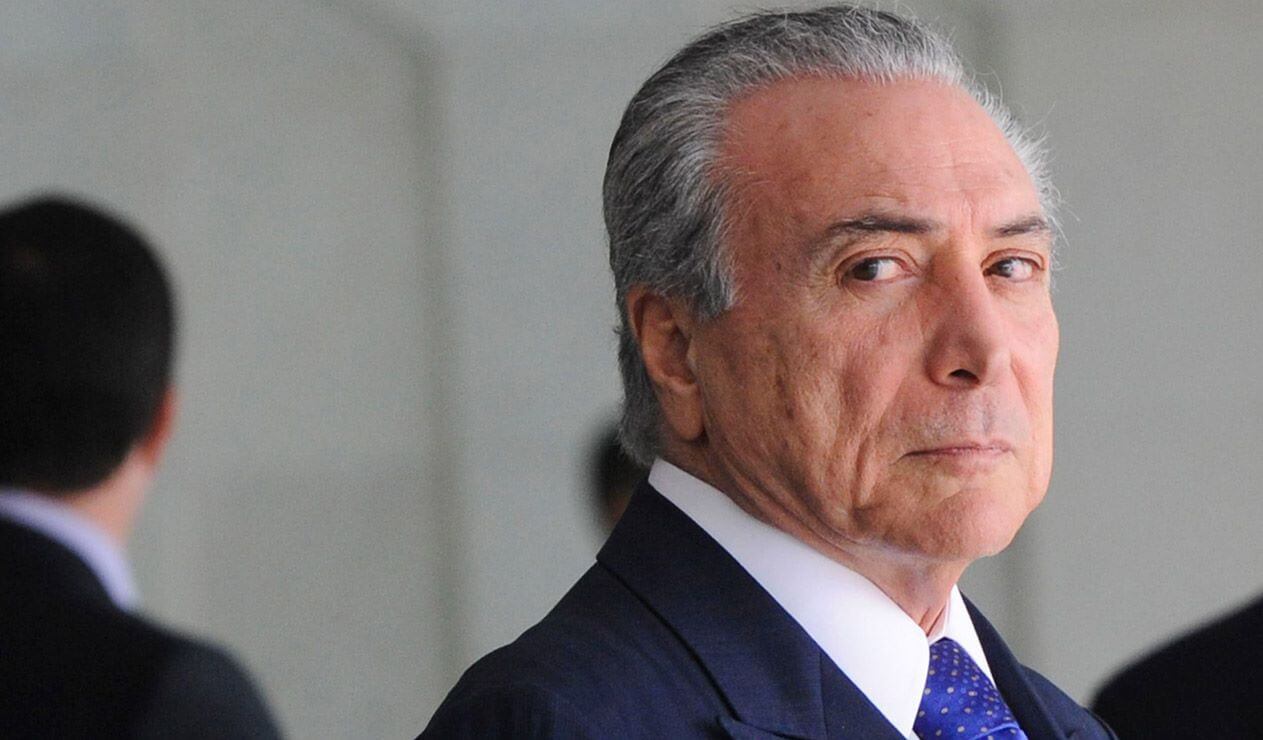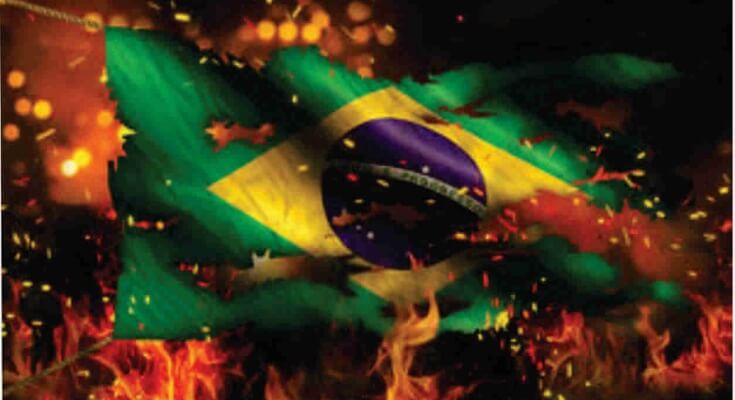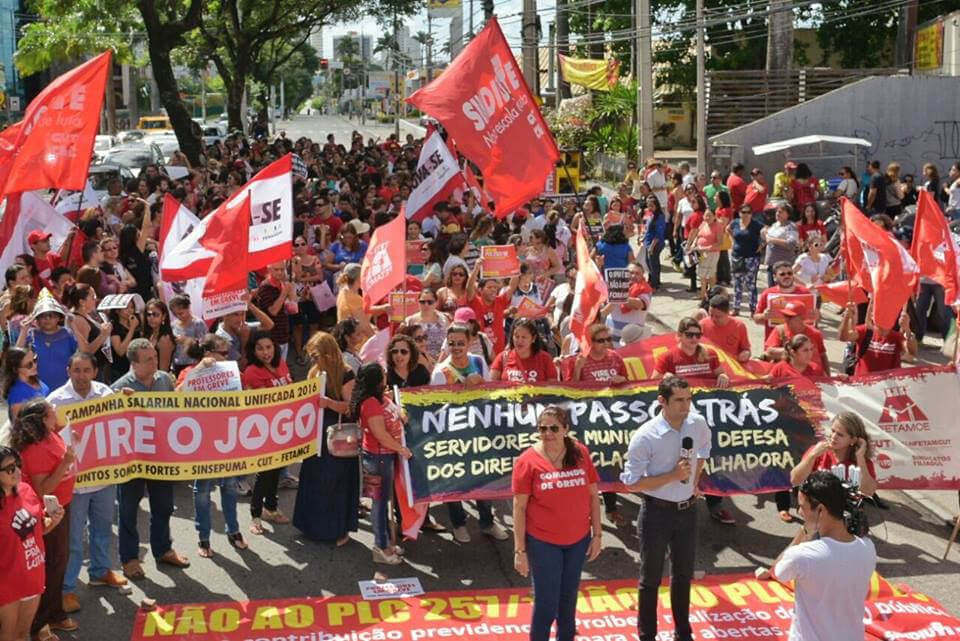Below is a never-before-published interview with international social movement leader and Honduran indigenous organizer Berta Cáceres, who wasassassinated on March 3, 2016. The interview was taken in Havana on September 4, 2009, two months after Honduran President Manuel Zelaya was overthrown in a US-backed coup d’état, while the unelected regime was still on a rampage to destroy resistance and the activists behind it. Cáceres’ murder has brought the overthrow of the last legitimately elected government to rule that country back into the global spotlight, because that overthrow laid the groundwork for the repression that now engulfs grassroots justice movements.
Cáceres’ message in the interview was clear: Pay attention. Stand up with and for us. Our fates are connected, and what happens to us can happen to you.
“What’s past is prologue,” Shakespeare said. Today, an unelected regime is again attempting to destroy resistance and the activists behind it. Berta’s message is as relevant to the Americas and the US now as then.
Beverly Bell: We’re in Havana at the Forum on Emancipatory Paradigms, speaking about the repression of those behind the coup d’état.
Berta Cáceres: We’ve seen an enormous attack against social movements, trying to dismantle us. The repressive forces have been brutal against youth, against women, against indigenous people. There has been an uncountable number of individual and collective human rights violations. The repression has been direct and shameless.
There have been smear campaigns and threats. There’s been a campaign of terror through the media, using the psychology of fear to criminalize protest and social movements. We’ve seen how the media, owned by the coup oligarchs, has been violating the right to free expression, repressing all the [dissenting] media and shutting up their journalists.
We know there are plans to capture and assassinate leaders.
BB: How have laws been trampled to justify all this?
BC: One way is suspending our constitutional rights and guarantees. The regime has pushed forward laws that, when they capture activists, let them use accusation against the compañeros like sedition, terrorism, illegal protests.
They’ve taken actions that are illegal, unconstitutional, and they haven’t even had to change many laws to do it, because the body of laws was already there as part of the plan for the war on terrorism that Bush was pushing.
But it doesn’t really matter to them whether or not there’s a law. It’s a coup.
BB: The other day, you spoke about the fact that, even though this is a terrible coup and completely in disregard of human rights and democracy, it is also a special time for you all. Could you tell us what advances the movement has made as a result of this coup?
BC: Well, Honduras has always been an unknown country. We’ve always been known for two things: for being a military base, the launching pad and training site for the attack on the Nicaraguan revolution and for the elite death squads of Guatemala and El Salvador. And the other thing we’re known for is Hurricane Mitch, that terrible disaster.
Now the world knows Honduras for a very different phenomenon. We’ve seen the amazement of the international community and the solidarity community. And we were surprised, as well, at how from the Honduran people burst forth this enormous force, after all the accumulated history of frustration and demands.
A real gain has been the massive, incredible involvement of women. They have been strong, energetic, creative, coming up with new kinds of struggle, displaying an amazing amount of energy.
Also the youth, the superstar participants in this movement. It’s no coincidence that the repression has been so fierce against them.
Indigenous people, as well: Since the first day we’ve been present in this mobilization, in all the marches, the occupation of highways.
We’ve been able to unite ourselves around one central objective, which is to overthrow the dictatorship. And to demand not only the restoration of the democratic president Manuel Zelaya, but also to unite around other historic demands.
We have a chant that we’ve really taken to heart, that says, “They fear us because we’re fearless.”
The oligarchs made a mistake when they said: “Three days and this will all be over.” They were wrong. They’ve been wrong about a lot of things. We can see that they are weak. We see them as beaten down. We see them as wavering in front of the force of the people of Honduras.
BB: You’ve said this is the first time that you all have been united in a popular movement.
BC: Yes. To me, this is the biggest accomplishment: the unity of a social movement. And they didn’t wait for structure or directions or ideology or leaders or anything. They had this explosion of organization, of rebellion, of insurrection in a way that was spontaneous, autonomous, and creative.
The coup and the military dictatorship helped us form ourselves into what we call here one big knot. We’re all united under the same objective. The movement understands that the resistance front, which is a broad-based movement with a lot of different mass organizations, needs to maintain its principles and its independence. This movement has taught a lesson not only to the ultra-right, but to us in the popular movement.
BB: You’re here with a lot of progressive folks at this Forum on Alternative Paradigms. Many of them have lived through dictatorships in their own countries. What’s the message you’ve been saying?
BC: You have to be clear about one thing: The coup in Honduras hasn’t just been against Honduras. It’s been against all emancipatory processes. It’s been a clear, threatening message to the progressive and leftist governments in our continent. It’s a message that the ultra-right and the imperialists aren’t going to stop. They want to reclaim power, and they know very well that they need our resources.
The coup is directly related to the plundering of our resources. It’s very clear, the involvement of gringo geopolitical interests in the region. It’s connected to other plans of militarization and annexation, as in the so-called drug war in Colombia, the threat of destabilization of the governments of Ecuador, of Bolivia, of Paraguay, of our region in Central America, of others.
So our call to this continent is that we need to really push to unite ourselves and create strategies between social movements and left governments.
BB: You have said a museum that should be built. For what and why?
BC: We’ve marched so much to defy a dictatorship that if we were to add up the hours and the kilometers – from Colon to San Pedro Sula, or from Batea or Piedra Gorda, del Paraiso to the capital – it would be something incredible. A friend said, “We’ve marched so much, for real, that we’ve worn out our shoes and our flip-flops. We’ve got to put together a museum for all the worn-out shoes.”
For us this means to raise up the evidence of the resistance. You know? We’ve seen compañeros with foot problems, with injuries, and they’re still there marching. We’ve seen a 76-year-old woman who never let the resistance down, day after day. And a 10-year-old giving profound speeches to crowds of 70,000 people. It’s something a people can only do when they feel that their hour has come.
BB: Is there anything else you want to say?
BC: Only that for us, as the Honduran people, it’s important that you understand our reality better. We have been a forgotten country. It’s important to understand our history, our resistance, the accumulation of all of these demands that the people are expressing right now.
Also to emphasize the need for solidarity, to call out to the international community and all movements to be in solidarity with us.
To fight against the dictatorship and repression in Honduras right now is to fight for our whole continent.
